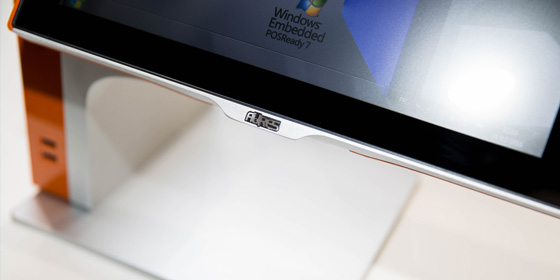By Jason SOUTHERN, AURES UK Channel Manager
Wi-Fi has become one of those all-but essential accessories of 21st Century life. A catch-all name for what is in fact a family of radio technologies used to run wireless local area networks, it’s difficult to imagine any type of premises these days not having Wi-Fi.
We use it in our homes to save us from the tangle of cables that would result in having all modern internet-ready devices connected by wires. We use it our businesses to add flexibility and mobility to our working practices, so we can work on the move as we carry our laptops, tablets and other devices with us. And with the rise in smartphone ownership, we use it to get online when we are out and about, taking every opportunity to save our precious data by connecting to the Wi-Fi in the restaurants, bars and shops we visit.
In retail and hospitality, Wi-Fi has played a crucial role in IT infrastructures for a decade and more. It has been central to the evolution of networked EPOS systems and wireless card payment terminals, and has provided a value-added service to customers who are ever eager to get online.
Now, with the evolution of Mobile POS (M-POS), Wi-Fi is playing more of a role than ever before, which is also creating new demands on the quality of Wi-Fi connectivity in business premises. With fixed EPOS terminals, there is only ever a critical need to have a good Wi-Fi signal in certain areas of the premises. With M-POS equipment, there has to be good coverage everywhere.
Counting on Wi-Fi
ARC Services is an EPOS and IT installation specialist who AURES partners with on supplying robust network infrastructure to customers. One of the key things ARC looks at is quality and reliability of Wi-Fi coverage in business premises.
Customer Relationship Director, Christian IRWIN explained why: “Take the example of a restaurant where waiting staff are using handheld tablets and mobile payment terminals for table service. They want to be absolutely sure this equipment will work everywhere. They don’t want to arrive at a table only to find that they cannot place the order or take payment by card because they can’t get a decent Wi-Fi signal. These mobile devices only work efficiently and add something to service if Wi-Fi works well.”
One of the things ARC does is carry out Wi-Fi heat map surveys assessing the quality of signal throughout a premises. Wherever any black spots are identified, they can then install additional router equipment to ensure an even distribution of coverage.
Another thing Christian says the company regularly advises clients to do, is to set up separate Wi-Fi networks for business and customer use. “People like being able to use Wi-Fi when they go to a restaurant or are browsing in store, it adds value to the customer experience,” he said. “But it isn’t absolutely critical that they connect, whereas for business equipment it is. If everyone, customers and staff, are using the same Wi-Fi, then at busy times you might find customers logging on starts to slow down your payment consoles and EPOS equipment.
“You don’t need to run two entirely separate physical networks; you can run two or more from the same access point. But you might want to set it up so the business Wi-Fi is faster and of a better quality, to support essential business operations.
“It is also important to have appropriate filtering and protection protocols in place for any public Wi-Fi you offer, to guard against viruses and people trying to hack into your business systems, for example, and to block access to illegal sites.”




